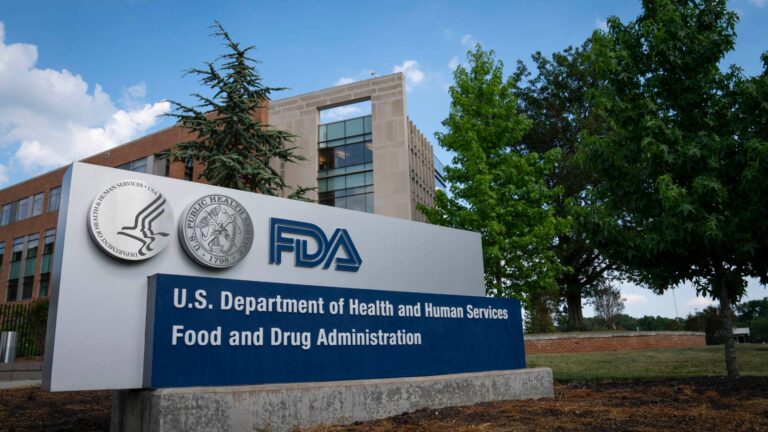Jan. 2, 2012 – In the waning days of 2011, the FDA released a significant draft guidance on company responses to unsolicited requests for off-label information by healthcare professionals and consumers. Although the FDA explicitly recognized the value of company-provided information, the draft guidance adhered to its traditional policy stance strickly limiting such answers to the individual making the request and precluding public dissemination.
In effect, the FDA banned all public responses to off-label questions in traditional and Internet-based media where the company has any control of content.
“The FDA guidance is clear and authoritative, so will enable more and better communication with professionals and patients. Indeed, it may clear the way for many companies to more confidently provide data to doctors and patients. It”s required New Year reading for agencies, publishers and media intent on helping companies provide better access to life-saving data. ” said John Kamp, Executive Director of the Coalition for Healthcare Communication.
“It’s a small step forward that enables companies to more aggressively inform doctors and patients, but much still needs to be done. The draft guidance simply does not go far enough to foster optimum information dissemination or to address the significant First Amendment issues highlighted by last year’s Supreme Court decision in IMS v. Sorrell,” Kamp said.
“The challenge for industry in 2012 will be to use this guidance aggressively and responsibly while working with the FDA to support much larger steps forward to advance the public health,” he continued. “The Coalition is coordinating with industry partners to respond to this draft guidance and other comments to encourage FDA to enable improved improved information dissemination to healthcare professionals and the public.”
Draft Guidance Basics
The FDA’s Draft Guidance, “Responding to Unsolicited Requests for Off-Label Information About Prescription Drugs and Medical Devices,” was issued Dec. 27, 2011. The draft begins by describing FDA”s legal framework for restrictioning off-label speech, but quicly acknowledges that “these off-label uses or treatment regimens may be important therapeutic options and may even constitute a medically recognized standard of care.”
In light of the growth of the Internet as a significant source of information for patients and healthcare professionals, the FDA’s draft guidance was developed for firms “wishing to respond to unsolicited requests for off-label information, including both requests made directly and privately to firms and requests made in public forums, including through emerging electronic media.”
In the draft guidance, the FDA describes the difference between unsolicited and solicited requests for information and breaks down its recommendations into two sections – one for non-public unsolicited requests and one for public unsolicited requests.
Unsolicited Non-public Requests
In the non-public request section, the agency makes seven recommendations about responding to unsolicited requests:
(1) The response should be provided only to the individual making the request “as a private, one-on-one communication.”
(2) Response information should “be tailored to answer only the specific question(s) asked.” The agency states that if the request is broad, it is the company’s responsibility to “appropriately narrow the question.”
(3) Response information should “be truthful, non-misleading, accurate, and balanced.”
(4) Response information should “be scientific in nature” and not be “promotional in tone or presentation” or be distributed along with any promotional material or information.
(5) Response information should be generated “by medical or scientific personnel independent from sales or marketing departments.” The agency further recommends that sales and marketing personnel
have “no input on the content of responses to unsolicited questions or requests for off-label information.”
(6) Response information should be accompanied by a copy of FDA-required labeling, a prominent statement notifying the response recipient that that FDA has not approved or cleared the product for the off-label use(s), a prominent statement disclosing the approved or cleared indications for the product, a prominent statement providing all safety information and any boxed warnings, and a complete list of references for all of the information disseminated in the response.
(7) Firms are directed to maintain records regarding the nature of the information requests (e.g., name, address and affiliation of requestor), the information provided to the requestor and any follow-up inquiries or questions from the requestor.
Unsolicited Public Requests
Responding to unsolicited public requests for off-label information calls for a different approach, according to the agency, which has concerns that “firms may post detailed public online responses to questions about off-label uses of their products in such a way that they are communicating unapproved or uncleared use information … to individuals who have not requested such information.” Additionally, the FDA has concerns “about the enduring nature of detailed public online responses to off-label questions because specific drug or device information may become outdated.”
Accordingly the agency recommends that firms respond only when the request pertains specifically to its own named product, that the response be limited to providing the firm’s contact information and not include any off-label information, that representatives who provide public responses clearly disclose their involvement with a particular firm, and that public responses not be promotional in nature or tone.
Firms also are advised in the draft guidance to include a mechanism for providing current FDA-required labeling, to not include any promotional material or links to any other information, such as product Web sites, product promotional Web sites, firm Web sites or third-party Web sites, and that the Web address where viewers are directed to obtain product labeling information itself not be promotional (e.g., www.bestcancercure.com).
Enforcement Implications
The agency states that if a company follows the recommendations in the draft guidance for responding to unsolicited requests, “FDA does not intend to use such responses as evidence of the firm’s intent that the product be used for an unapproved or uncleared use.” The FDA further states that alternative approaches outside of these recommendations “would not constitute a per se violation of the law, but could potentially be introduced as evidence of a new intended use.”
Comments and suggestion on the draft guidance should be submitted within 90 days of the guidance issue date.



